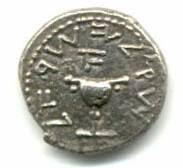On the trip, I read Assassinations That Changed The World by Nigel Cawthorne.
Overall, it is a very interesting book that goes in reverse chronological order.
The first assassination discussed occurred in 2020, with the final one examined happening rather famously on the Ides of March, 44 BC.
Each chapter gave some interesting background into the public figure that met their untimely -- or timely -- end depending on your point of view. Most chapters give some decent historical context to the event and quite a few explain the effect the assassination had in changing the world - but not all do
Indeed, was that public figure and their ending really all that, and if their assassination really changed the world is however often in question.
While, for example, the assassination of the Russian Tsar and reformer Alexander II is convincingly argued by the author to be the spark that led to the repression of Alexander III, the incompetence of Nicholas II, and thence on to the Russian Revolution and the Soviet Union and thence to Putin, the loss of other figures seem to have been far less world changing if not changing much at all aside from their absence, and often no argument is made as to how their death at the hands of their assassin changed the world.
The death of Jamal Khashoggi, for example, hardly changed the world much, aside from some short-lived public outrage against the Saudis. The death of the Al Qaeda supporter (somehow the author neglects to mention his rather long-standing friendship with Bin Laden and links to Qatar and Al Qaeda) and opponent of the Saudi regime, hasn't really affected even US-Saudi relations all that much, nor anyone else's for that matter.
So too, the death of John Lennon, while a tragic loss of a singer, hardly changed the world all that much. Quite a few of those mentioned in the book similarly had a less than world-changing effect and often not much of a local effect either. The assassinations of Alexander Litvinenko, Pancho Villa, Emiliano Zapata, Olof Palme, James Garfield, Spencer Percival, and quite a few others again had limited effect on the world, even as their deaths may have changed matters to some extent in their native countries.
Overall, it's still a fun and engaging romp through history, punctuated by stabbings, shootings, and bombings -- and in the case of the assassination of Rasputin a poisoning, followed by a shooting, and finally ending in a drowning.
Not a bad quick little enjoyable read.

3 comments:
That's an 'interesting' take on that book... LOL
I wasn't aware of Khashoggi's politics, other that he was opposed to the Saudis. I am kind of opposed to the Saudis, but maybe tyrannical governments are the only kind that work in that part of the world.
Old NFO: Yep, the book is rather interesitng.
Check Pergiel: Yep and its fun how all the furor that took place over his death neglected to mention he was best buds with Bin Laden:
Jamal Khashoggi's close friendship with Osama bin Laden: How murdered journalist built relationship with the future al-Qaeda leader while covering Mujahedeen and cried when he died
He was also closely aligned with Qatar which is the big anti-Saudi and Iran and Isis and Hamas supporter in the region:
Washington Post: Text Messages Reveal Khashoggi’s 'Problematic' Ties with Qatar
He probably he should have registered as a foreign propagandist rahter than as a "journalist" as he was a mouthpiece for Al Qaeda and Qatar and their interests at a US newspaper.
Post a Comment